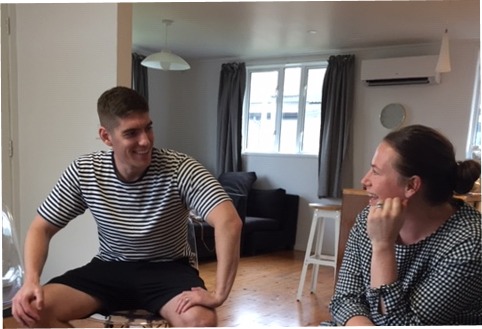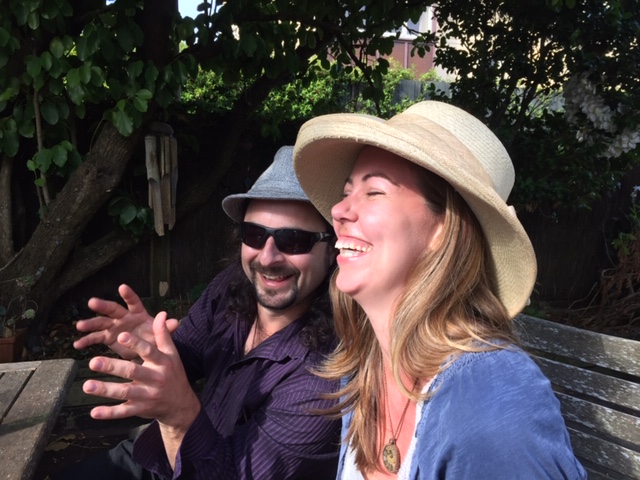Nurturing close friends
We build up relationships with people through our lives, and yet some people feel they have no friends, they don’t know how to make friends, and they don’t know if the other people in their lives feel the same way about them.
There are many factors to consider for preventing loneliness. In this article we give you a realistic understanding of what it takes from two people (or each individual in a group) to create, develop, and maintain meaningful relationships (emotionally close friendships) that are mutually beneficial to all.
When you consider what is required for these close friendships then when something doesn’t feel right with one or more of your relationships you work out what can be done from your side to change the relationship – adjusting your expectations of yourself and the others in your life.
For want of a better word, through this article we will call those people you are connecting with friends. So when reading this substitute “friend” to be: your significant other, your family, your caretakers, your communities, your whanau, your workplaces, your social settings…and consider your groups as well as your individual friends.

Contents
Close friends ….
… can be near or far, and from surprising places.
… have an ongoing mutual desire to be friends.
… take time and meaningful connection to develop.
… have reciprocity (mutual benefit) in their relationship.
… respect each other, share confidences, and trust each other.
… have some compatibility in beliefs, attitudes, and interests, and some shared activities.
… accept our humanness – so disagreement and hurt are inevitable.
… have honesty and forgiveness.
… are emotionally available to each other in a crisis.
Close friends can be near or far, and from surprising places
Face-to-face friendships are of great value – you can see and sense more in person than over technology. However, with shared commitment you most definitely can have strong relationships and feel very close to people far away. The important factor is that all the elements (coming up) are still in place for both of you to have meaningfulness. People have developed strong relationships through pen-pals, over the internet, during times apart for jobs and national service.
People have worked alongside each other for years (carers, colleagues), to realise that they are close friends, and close friends can be made from chance meetings – on the bus, in cafes – as well as through shared activities.
So regardless of your situation – able to travel, housebound, living remotely – you have the opportunity for having close friendships… from the people already in your life that you may be overlooking, or you have not nurtured in a while, or new ones to be created.

Close friends have an ongoing mutual desire to be friends
Simply spending time – with your siblings, your colleagues, your significant other, people in your sports or meet-up group – is not enough to make a relationship meaningful. A mutual desire means that you are both want to give more to each other in the time you do spend with each other, and you consciously make the time to be in each other’s company (even remotely). There is an intention that you will connect again and at some point you can assume that you will be connecting again soon, without question.
Close friendships take time and meaningful connection to develop
Connecting meaningfully is how close and lasting relationships with friends are started, how they develop and what sustains them. An emphasis needs to be on the word develop – close friendships evolve out of conscious positive interactions.
Having an instant attraction – feeling your chemistry – may feel as if it’s a great start of a relationship, but that’s all it is… a potential rather than a promise of things to come. More time and great communication is needed for really getting to know each other. They aren’t instant and every combination of friendships has a different trajectory.

Close friends have reciprocity (mutual benefit) in their relationship
A strong relationship has both sides “giving and taking” with your personal circumstances and personalities, factored in. So your contributions are likely to be different – but you both very much are contributing to the development or nurturing of your friendship in a way that benefits each of you and feels right to both of you.
Holding a friend accountable to how many times each of you gives in a certain way makes your relationship transactional. Appreciating you are both giving to each other in your unique ways deepens your relationship.
Close friends respect each other, share confidences, and trust each other
In a friendship, no one has a right to be respected – you gain respect from what you each experience of each other. To share confidences puts you in a vulnerable position, so before you share (sometimes deeply) personal information about yourself, you would have respect for and trust in the other person. Our past often dictates how soon we can trust someone, so matching each other’s pace of sharing… starting slowly, stretching yourself a little further over time – and checking in how that’s being received – is the best way forward.
If only one person shares confidences, and the other holds back, the relationship is still developing trust. Rushing someone to trust you might even make them more guarded. If you overshare deep confidences before someone is ready that too can feel threatening, and jeopardise a developing friendship.

Close friends have some compatibility in beliefs, attitudes, and interests, and some shared activities
Neither looking to find people who are clones of ourselves, or the complete opposite of us, is helpful in developing a strong friendship. Our close friends supplement and complement us, each in their unique way. We are looking to have enough overlap, feel comfortable with each other, while sometimes being stretched in our thinking and/or activity. That’s quite different to feeling that you are being questioned all the time, either like being in an interview or worse, a court room.
Our close friends do not need to cover every activity we do – some activities can be done alone, or with less close friends. Being pushed out of our comfort zones from time to time, can be healthy and fun, whereas consistently testing each other, or being highly competitive with each other, might diminish your friendship.
Close friends accept our humanness - so disagreement and hurt are inevitable
The likelihood of any meaningful relationship amongst humans being both total smooth sailing, and is developing, is low. People see the world from their own perspective, they have their own experiences which shape their current views. People often misinterpret well-intentioned behaviour simply because it is different to how they might have done something. People hurt one another with no maliciousness or intent. Accepting when these happen, trusting that the intention behind the act or words was in good faith, makes for a stronger friendship.
Close friends have honesty and forgiveness
Close friends mess up! We forget each other’s birthdays, and forget things that are important to each other; and sometimes we do things that just are stupid! How you deal with these are a true testament to how well you sustain your meaningful relationship. Be honest and be forgiving.
There is value in having frank conversations about how we feel, and what we would like different. The key is finding a good balance between talking (meaningfully connecting) without overanalysing, or minimizing… and then moving on. Forgiveness means no longer resenting, having no desire to punish the other person, and to move forward without anger.
Using the incident against your friend sometime later – whether hours, days or years later – is not forgiveness. We go back to trust – you and your friend have to trust that when you say you forgive, you really do actively forgive in spirit and intent.

Close friends are emotionally available to each other in a crisis
One of the most wonderful aspects of having a close friend is that you know you can turn to in a crisis – when things are going rough and when you just need a pick me up. They give you comfort, a place to express yourself, and validate your feelings. The best friendships thrive on genuine maturity where each of you enables the other to continue to self-determine the next steps. That means close friends put aside judgement, problem-solving and giving unsolicited advice – and simply are a sounding board, and potential source of resource.
Close friends welcome you having other close friends
Humans need people – not person – in their lives. So close friends accept that each of us do better with more than one close friend. Our close friends therefore accept willingly that you have other friends, and given that each of you are unique, so is your friendship. Therefore there is no necessity to work out which friend means more to you. Each will add value to you, as you add value to them. There is no reason that any of your close friends need to be close friends with each other… if they do become their own close friends, you have done an invaluable service to each of them.
If you need support
While our whole focus is on doing what you can to prevent loneliness, if you are struggling with what steps to take to develop your meaningful relationships, perhaps having a mentor would help. In that case using our service might be just what you need!
